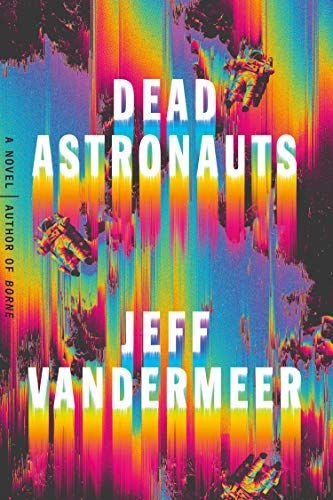
Dead Astronauts A Novel
Jeff VanderMeer's Dead Astronauts presents a City with no name of its own where, in the shadow of the all-powerful Company, lives human and otherwise converge in terrifying and miraculous ways. At stake: the fate of the future, the fate of Earth—all the Earths. A messianic blue fox who slips through warrens of time and space on a mysterious mission. A homeless woman haunted by a demon who finds the key to all things in a strange journal. A giant leviathan of a fish, centuries old, who hides a secret, remembering a past that may not be its own. Three ragtag rebels waging an endless war for the fate of the world against an all-powerful corporation. A raving madman who wanders the desert lost in the past, haunted by his own creation: an invisible monster whose name he has forgotten and whose purpose remains hidden.
Reviews
Ryan Mateyk@the_rybrary
Cody Degen@codydegen
Kyle S@kylesq9
Fraser Simons@frasersimons
Sunyi Dean@sunyidean
Adam Wilson@adamwilson
claire@calorie
Andrew Ireland@aireland92
Lauren Robinson@lozrobinson5
newt the ungallant@lonelystar
Julie Boyer@julieboyer
Kyle Curry@kcurry24
Boothby@claraby
Thomas clegg@thmsclegg
Brett Seybert@brseybert
Jasmine@jasmeaniethebookish
Kaleb McClellan@kaleb
Caitlyn Baldwin@caitlynkbaldwin
Emily Perkovich@undermeyou
Rebecca Thornber@rebeccathornber
Joseph Keenan@joe
ANDY SLOPSEMA@aslopsema
Phil James@philjames
Raymie Smith@raymie